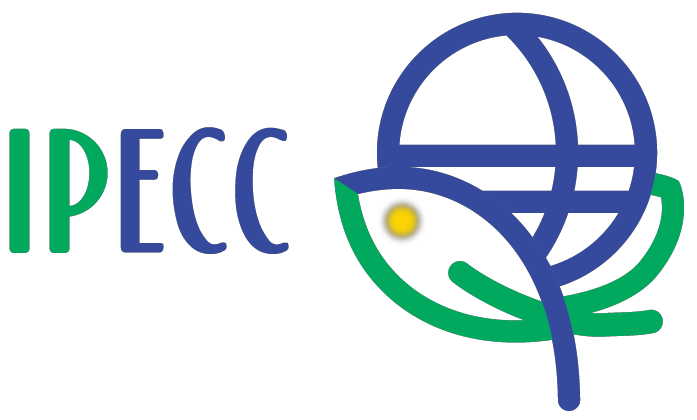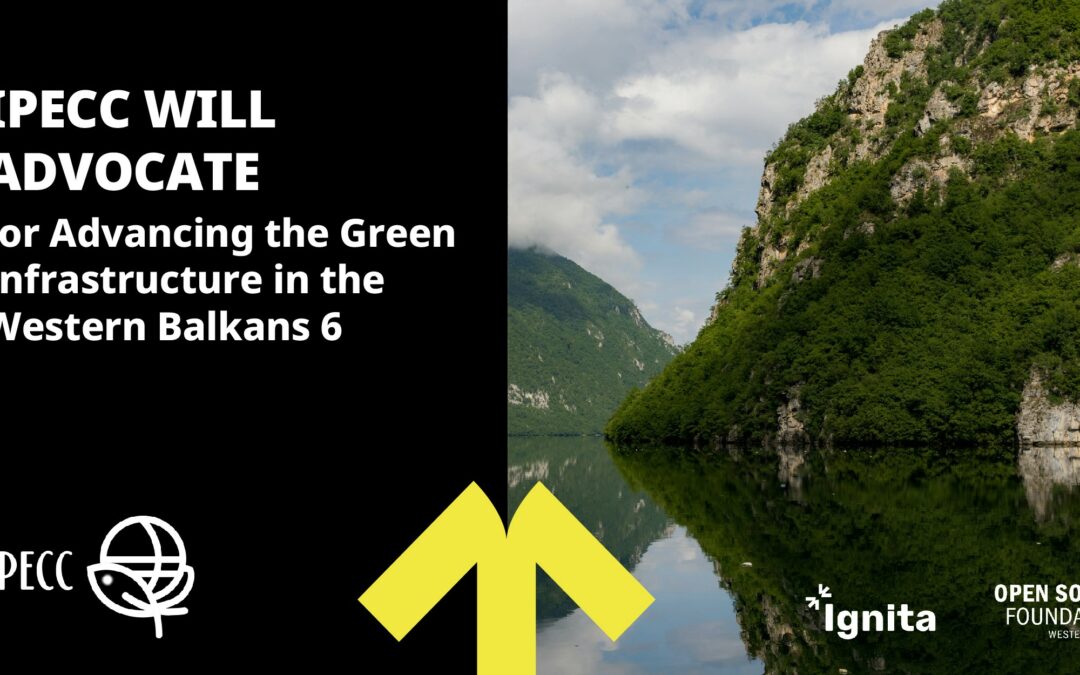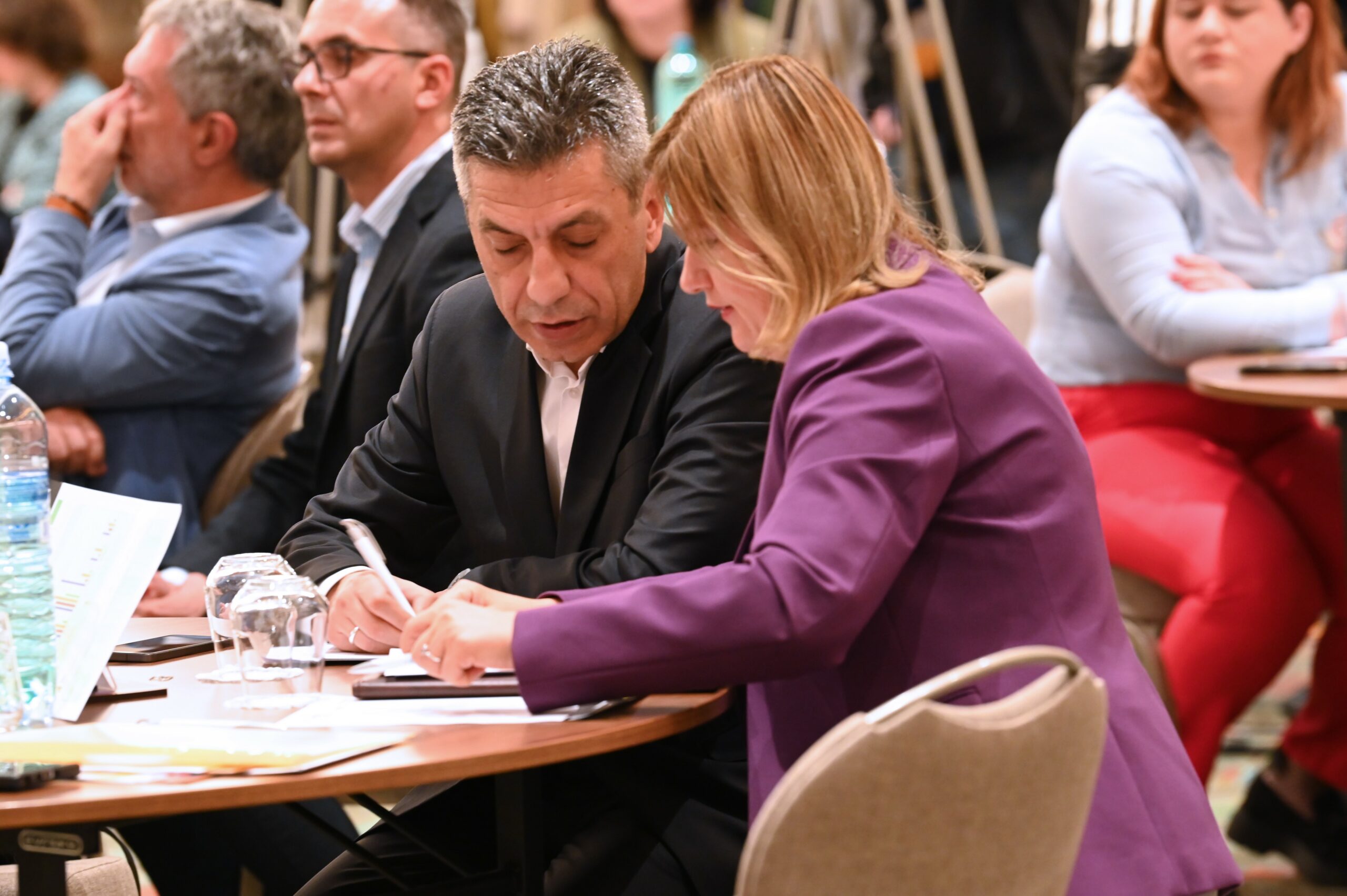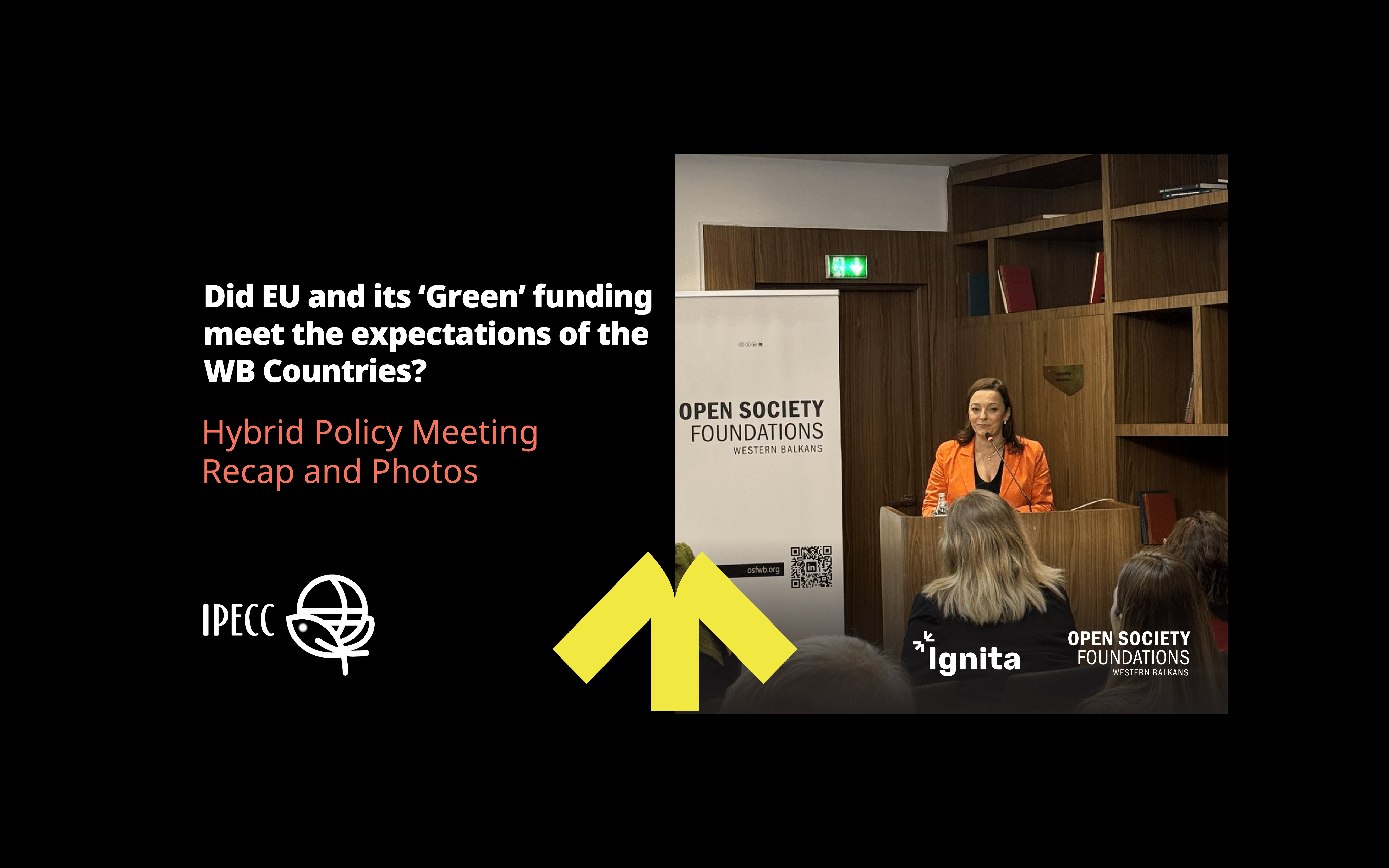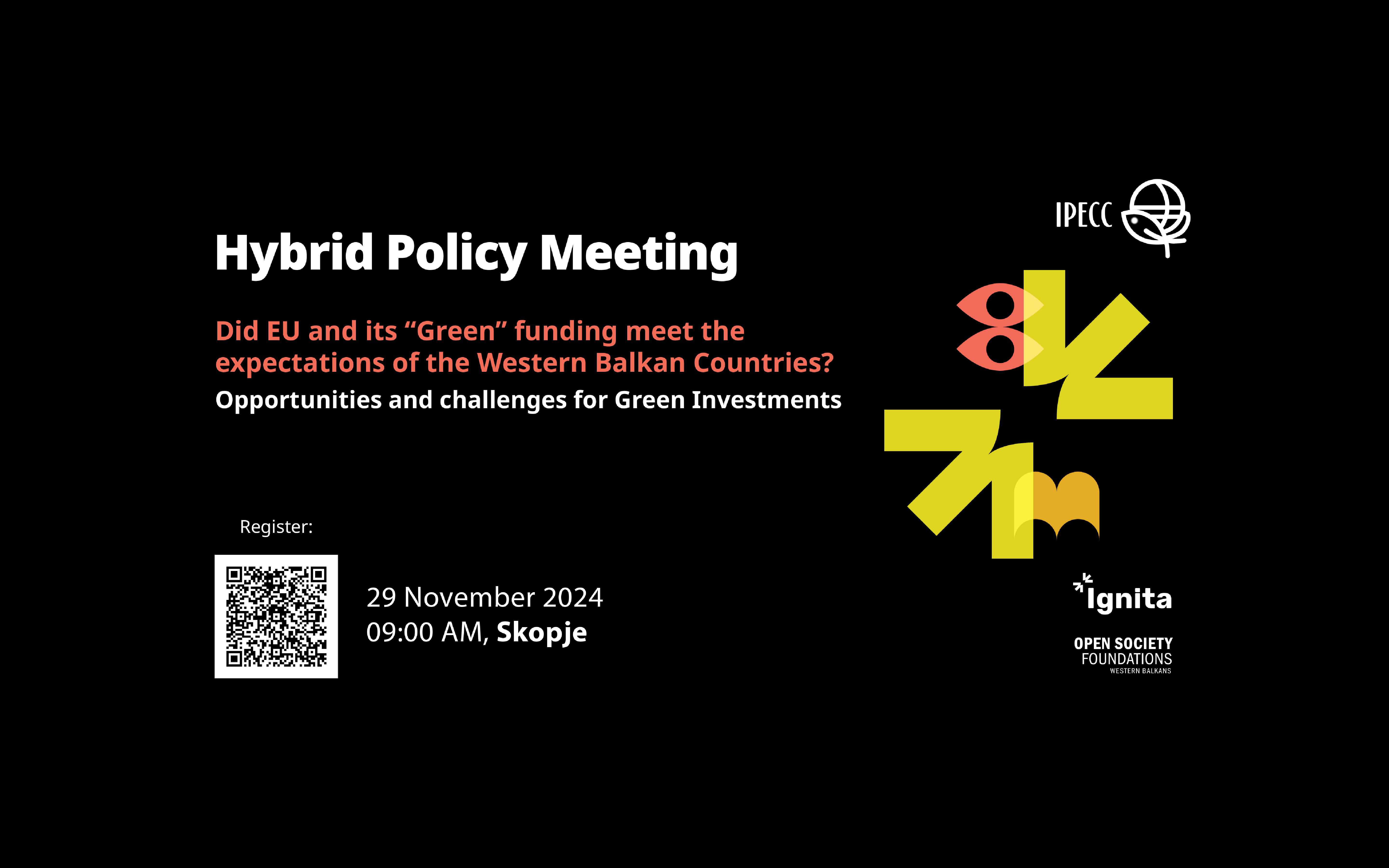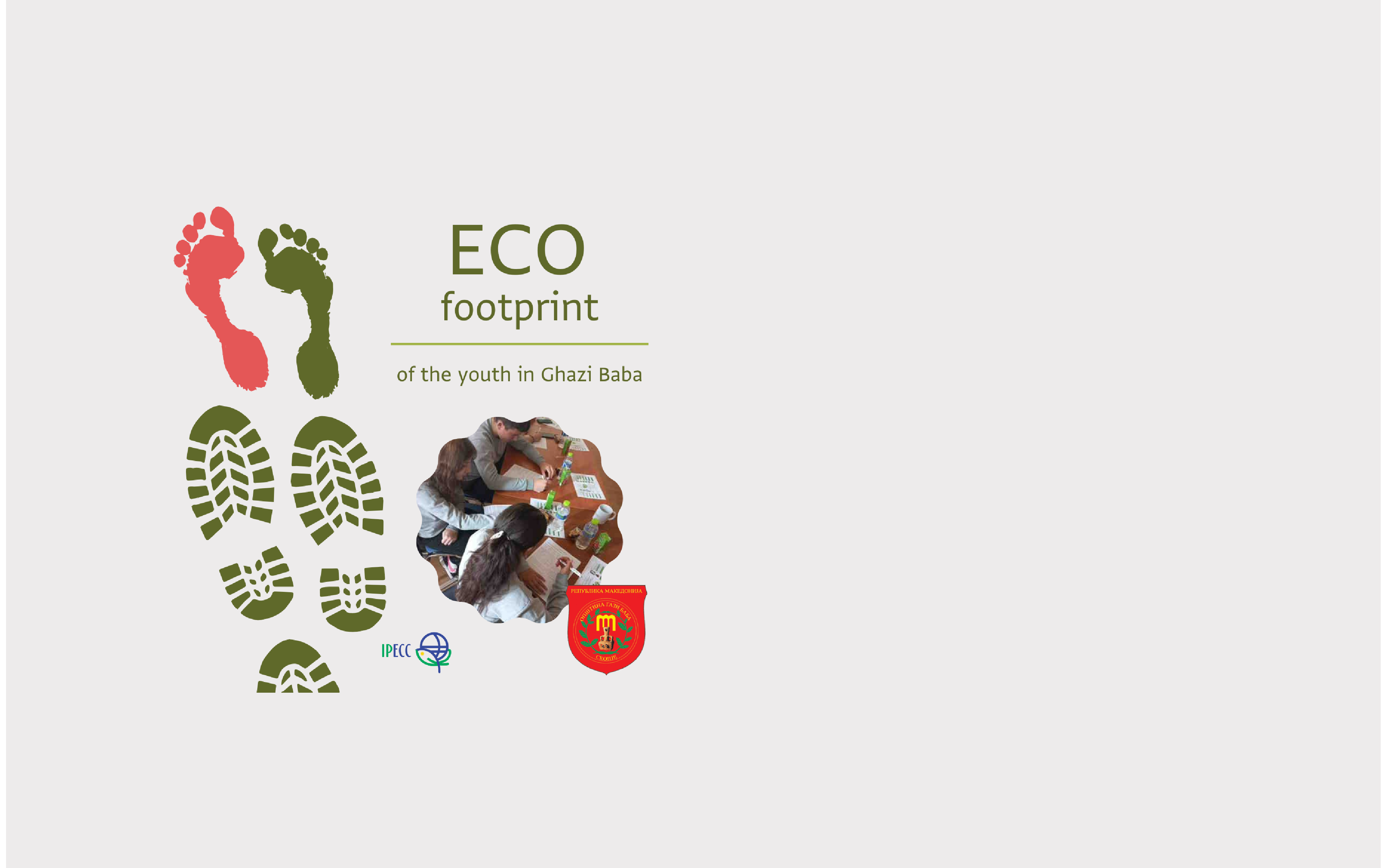During the 2023 Civil Society Forum (CSF) within the Berlin Process, the Institute for good governance and policies in environment and climate change – IPECC Skopje, led the Thematic Working Group for Climate and Green Agenda, which resulted in creating valuable Policy Paper presenting the three key recommendations emphasizing the importance of boosting green infrastructure, increasing EU funding, and strengthening administrative capacities for environmental and climate – related matters in the WB6 countries. Considering the key role of the EU Green Agenda for the Western Balkan (GAWB), it became evident that urgent action is required for advancing its implementation and prioritizing green investments as foundational elements for meeting its objectives.
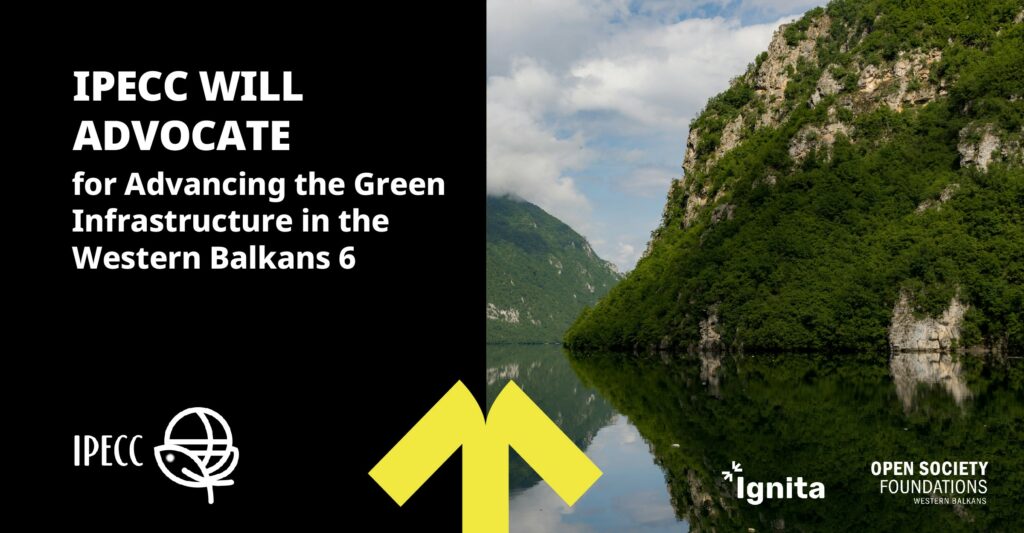
Therefore, to further explore the main obstacles hindering GAWB effective implementation and the funding opportunities for green infrastructure in the WB6, on April 30, 2024, IPECC signed an agreement with The Open Society Foundations – Western Balkans (OSFWB), for implementation of the project titled “Advancing the Green Infrastructure in the Western Balkans 6”.
The primary objective of the project is for IPECC, supported by CSOs, academic institutions, trade unions, experts in relevant fields from the WB region and various Think Tanks from EU member states, to engage with the policymakers at national, regional, and EU levels, such as NIPACs, ministries of finance and environment, and EC representatives, and advocate for advancing green investments by integrating them into environmental strategies and prioritizing for EU IPA financing, including implementing measures to encourage cooperation within the WB6.
The green infrastructure is crucial for the WB6 EU accession. Although in different stages in the process, the WB6 countries share similar challenges. Facilitating the GAWB implementation in the WB6 with particular focus on green infrastructure, will result in accelerating the accession to EU and improving the people’s living standards. From this perspective, the project activities will directly contribute to addressing the mentioned challenges and, more importantly, stimulate the dialogue among the WB6 regarding these issues.
This project is supported by the Open Society Foundations Western B
